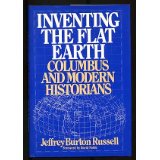What do I think of Jeffrey Burton Russell’s book? Let’s talk about it on Deeper Waters.
Russell’s book is a look at 145 claims about Christianity. Something that will strike the reader early on is that while some of these are indeed myths, not all of them are. In fact, I would think a better title might have been “Exploring questions about Christianity.” So for instance, let’s suppose we take one like “Christianity is boring.” Sure. That can be argued to be false. It might have been better to instead have it be “Is Christianity boring?” Now let’s move to something like question 99. “Christians believe in Hell.” This isn’t a myth. Most Christians do in fact believe in Hell. Having it be “Do Christians believe in Hell?” would make this far better. While the majority of chapters are “myths”, some are not and to cover all of them, it would be better seen as saying this book is meant to explore questions about Christianity.
This one can be a hit and miss book. There is always a problem when people too often try to cover a wide wide range of topics. Inevitably, some will be treated less well than others will. The ones that are strongest will be the ones that are within the subject matter of the writer. Russell is a historian so lo and behold, he does excellent on history. When it gets to issues that could have different opinions are can be controversial, such as social ethics issues like compromise, Russell often says that Christians have different viewpoints on this matter.
It certainly is true that Christians can, but most Christians reading something like this will hope for a more conservative approach I think. To go for an in-between ground area can be a turn off for the reader. I would have in fact preferred a book that would have been all about historical concerns about Christianity rather than a book that did excellent on some and on others, it just didn’t do too well.
Of course, if we go this route, I think it would be great to see a combined effort. Imagine if someone like Russell had taken the historical questions, someone like Plantinga had taken philosophical questions, and someone like Francis Collins had taken scientific questions. Joint-effort among Christians in this area would go a long way towards making an excellent defense for Christianity. After all, if an expert sees a major flaw in one area that is outside the expertise of the author, they are likely to doubt the author where he does go into his expertise.
The bonus however with a grab bag is that you can get something that you can think about in many cases. The discerning reader will be able to separate the wheat from the chaff and get the information that he needs out of the book. Of course, those who don’t are those who engage in all-or-nothing thinking already and can hardly be convinced about anything that does’t already agree with them, be they Christian or atheist.
In the end, this one is a difficult one to judge as a whole. Some readers might want to pick it up and go through and look on a few central questions and get ideas. For those who haven’t read much in apologetics, it could introduce them to questions that they do want to study fuller.
In Christ,
Nick Peters
